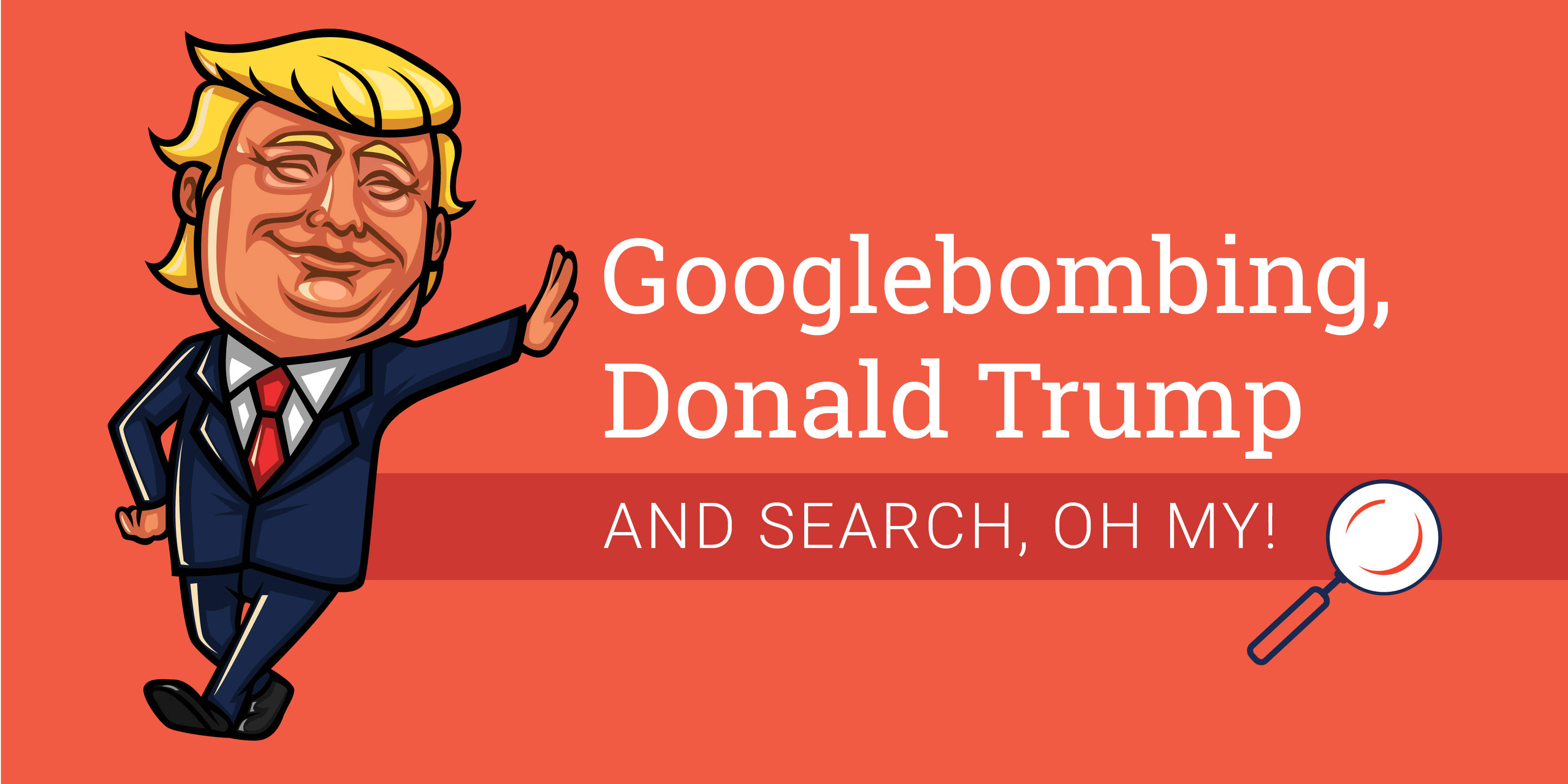Googlebombing, Donald Trump and Search, Oh My!
Lisa Hirst Carnes | October 2018

My after work routine usually involves catching up on the news while I’m making dinner. Rarely does the news, Donald Trump, and digital marketing intersect. Today was different.
Yesterday, The Chief Executive of Google, Sundar Pichai, testified before the House Judiciary Committee. Early on, it became obvious that the tech committee lacked the basic knowledge of how search algorithms work.
While the hearing was primarily about privacy and data collection, there were some questions about Googlebombing and algorithms. When the conversation shifted, my ears perked up. I stopped chopping my shallot and turned up the radio.
At one point, Democratic Representative, Zoe Lofgren from California questioned Pichai about Google’s algorithm noting that if you Google the word ‘idiot’ under images, pictures of Donald Trump come up. She wondered how search works and how that could occur. Was there a little man behind a curtain? Are Google employees able to manipulate the results? With effort, can people influence the results? The short answer is yes, but it’s not easy.
Those of us working in digital marketing were already aware of the Trump / idiot image debacle. Back in July, Search Engine Land reported how people manipulated the results through Googlebombing. Simply put, Googlebombing is a collective effort to use links to elevate a website in search. Read more here.
Since results in Google reflect what is being searched for at any given time, Googlebombing for results make sense. After all, Google wants to provide the most relevant results and top searches and activity informs that process. In this case, Googlebombing involved LOTS of upvotes on Reddit.
Googlebombing gets at a perennial issue of search. Digital marketers are on a constant quest of breaking down how Google’s algorithm works. How do you get something to rank well? How do you gain visibility in search when it’s constantly changing? Digital marketers look for influencing factors. In other words, what causes something to rank? Is it the title tag, URL, meta description, headings, backlinks, page content, domain authority, or something else? It’s our job as digital marketers to identify what causes something to gain visibility and search.
There are a few reputable sites that publish updated ranking factors every year. We recommend Backlinko and Moz. Keep in mind that correlation does not always mean causation. Rand Fishkin discusses this topic on here.
If you’re interested in learning more about digital marketing and SEO, please check out our Crash Course schedule for 2019.
